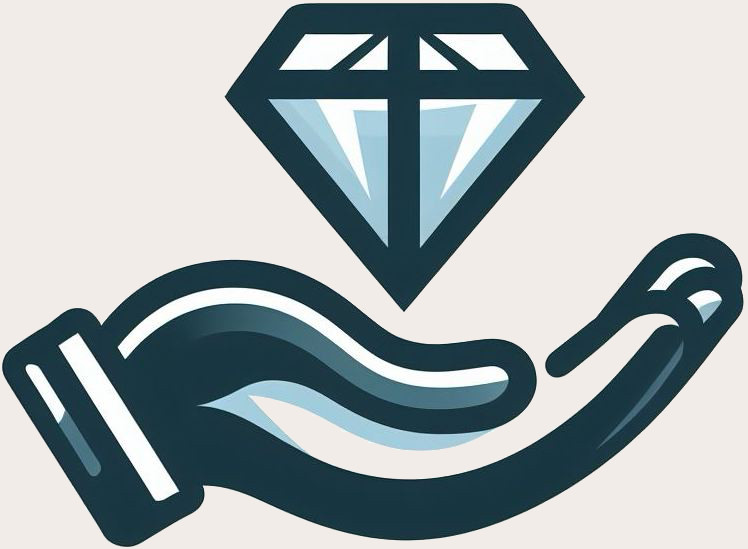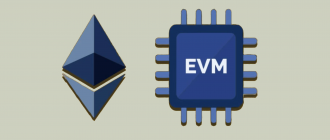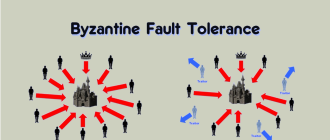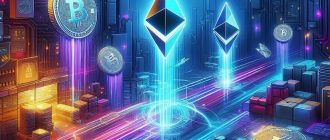Decentralized Autonomous Organizations (DAOs) are an innovative and potentially revolutionary approach to managing and organizing resources using blockchain technology. This article explores what DAOs are, how they function, and the opportunities they present.

What is a Decentralized Autonomous Organization (DAO)?
A DAO is an organization governed by computer code, distributed and automated through smart contracts on the blockchain. Unlike traditional organizations, DAOs operate without hierarchical management and do not rely on a central executive body. Their primary function is to facilitate a democratic and transparent decision-making process among participants, who contribute and vote on key organizational issues using their tokens.
DAOs address the problem of centralized control, reducing risks of fraud, corruption, and human errors. They also help in creating global communities without boundaries, where participants, regardless of location, can influence the management and distribution of organizational resources.
The Origin of DAOs
The concept of DAOs emerged from the idea of using blockchain for more than just the creation and storage of cryptocurrencies. Early projects like Bitcoin and Ethereum demonstrated the capabilities of decentralized transaction processing, inspiring developers to create fully autonomous organizations. A historically significant project was “The DAO,” launched on Ethereum in 2016. Despite its security issues, it marked the beginning of the development of many other DAOs.
These organizations continue to evolve, aiming to redefine collaboration and governance in the digital age, driven by transparency and collective decision-making.
How Do Decentralized Autonomous Organizations (DAOs) Work?
Decentralized Autonomous Organizations (DAOs) operate on the foundational technology of smart contracts, which are executed on blockchain platforms like Ethereum. These contracts encode predetermined rules and conditions that execute automatically, thus enabling operations without the need for external or centralized authority.
Decision-Making in DAOs
- Tokenization of Voting Rights: Participation in a DAO often requires owning specific tokens, which grant voting rights on governance issues. The influence of a vote is proportional to the number of tokens held.
- Proposals and Voting: Any participant can propose changes to the DAO’s operations, which must be supported by a minimum number of tokens to be considered. Following this, a voting period ensues where participants allocate their tokens for or against the proposal.
- Execution of Smart Contracts: If a proposal is approved, the corresponding smart contract is automatically activated to implement the decision. This might include payouts, structural changes, or updates to the code.
Technical Architecture of DAOs
DAOs are typically developed on blockchain platforms that support smart contracts, such as Ethereum, using the Turing-complete programming language Solidity. This allows for the creation of complex logical conditions and actions that can be autonomously executed by the blockchain. The use of blockchain technology ensures data integrity and immutability, as well as decentralization of data storage and access. This makes the governance processes of a DAO transparent and verifiable by all network participants, enhancing trust and security.
Projects Utilizing DAOs
Decentralized Autonomous Organizations (DAOs) play a central role in the management and operations of various innovative projects. Here are some examples that illustrate the diverse applications of DAOs across different sectors:
Maker DAO
Maker DAO is a decentralized organization that manages the stablecoin DAI, which is pegged to the US dollar. The DAO oversees all aspects of the Maker ecosystem, including risk management, the issuance of DAI, and financial incentives. Voting on key decisions is conducted among holders of MKR tokens, influencing stability parameters and risk insurance.
Aragon
Aragon provides a platform and tools for creating and managing DAOs. Users can efficiently organize decentralized autonomous organizations using provided templates and user interfaces, making the process of creating a DAO accessible even to those without deep technical knowledge.
Decentraland
Decentraland is a user-governed virtual reality platform where the DAO gives participants control over land and platform rules. The DAO manages software changes, content policies, and the distribution of funds among projects and initiatives, making it entirely community-governed.
Compound
Compound is a decentralized platform for borrowing and lending cryptocurrency that operates entirely through a DAO. Governance of protocol parameters, such as interest rates and the addition of new markets, is conducted through the voting of COMP token holders.
Uniswap
Uniswap is a popular decentralized exchange that also employs a DAO model for governance. Holders of UNI tokens can vote on protocol changes, fund distribution among developers, and other key updates, allowing the community to directly influence the platform’s development.
These projects highlight the versatile applications of DAOs, from finance and stablecoins to virtual reality and decentralized financial services, each contributing uniquely to the evolution of decentralized autonomous organizations.
Pros and Cons of Decentralized Autonomous Organizations (DAOs)
Decentralized Autonomous Organizations offer unique benefits and face specific challenges in their operation and management. Below are detailed insights into their advantages and drawbacks:
Pros of DAOs
- High Degree of Transparency: All operations and decisions within a DAO are recorded on the blockchain, ensuring complete transparency and making information readily available for analysis and verification.
- Absence of Centralized Control: DAOs eliminate the need for a traditional management structure, minimizing risks associated with human error and fraud.
- Global and Inclusive Participation: DAOs allow anyone with internet connectivity and cryptocurrency to participate in governance, regardless of geographical location.
- Adaptability to Changes: DAOs can quickly adapt to changes through voting mechanisms that allow decisions to be made based on current needs and conditions.
Cons of DAOs
- Complexity in Management: Having a large number of participants with voting rights can complicate the process of making quick and effective decisions, especially in critical situations.
- Technical Vulnerabilities: DAOs rely on the code of smart contracts, which can contain vulnerabilities, putting the entire organization at risk if exploits occur.
- Regulatory Uncertainty: The legal status of DAOs is still evolving, which poses legal risks for participants, including potential restrictions and penalties from regulators.
- Cost of Gas and Scalability Issues: Blockchain transactions, especially on platforms like Ethereum, can become costly due to high gas fees during network congestion, limiting the scalability of DAOs.
These advantages and disadvantages highlight the importance of careful planning and development of DAOs, as well as the need for continuous monitoring and updating of smart contracts to ensure their security and efficiency.
Future Prospects for Decentralized Autonomous Organizations (DAOs)
The development trajectory of DAOs promises significant transformations across various sectors, enhancing their functionalities and integration with traditional industries. Here’s a closer look at the future prospects of DAOs:
Expansion of Functional Capabilities
As blockchain and smart contract technologies advance, DAOs are becoming capable of performing more complex and diverse tasks. Innovations in programming and smart contract security could dramatically increase their applicability in sectors ranging from finance and insurance to supply chain management and voting systems.
Integration with Traditional Industries
As legal and regulatory frameworks begin to adapt to blockchain technologies, DAOs could start integrating with traditional business structures. This could lead to the emergence of new business forms where decisions are made collectively, and resources are distributed more efficiently and equitably.
Improvements in Scalability and Cost Reduction
Technological enhancements, such as the development of more efficient blockchain platforms and consensus mechanisms, promise to reduce transaction costs and improve the scalability of DAOs. This could make them more accessible to a broader audience and lower the barriers for entry for new participants.
Promotion of Global Interaction and Democratization
DAOs offer a unique model for global interaction, where each participant can influence governance and resource distribution on an equal footing, regardless of their physical location. This could lead to new forms of democracy where decisions are made based on direct and active participation.
Changes in Corporate Governance
DAOs could become a model for future corporate governance, offering alternatives to traditional hierarchical structures. This could lead to more efficient and responsive management processes, where stakeholders have a direct say in decision-making.
Conclusion
DAOs represent a powerful tool for democratizing governance and resource management, standing at the intersection of technology and social structure. They offer new opportunities and challenges that are likely to have a significant impact on various fields of activity in the near future. These developments highlight the need for ongoing innovation and adaptation as DAOs continue to evolve and reshape the landscape of decentralized governance.







